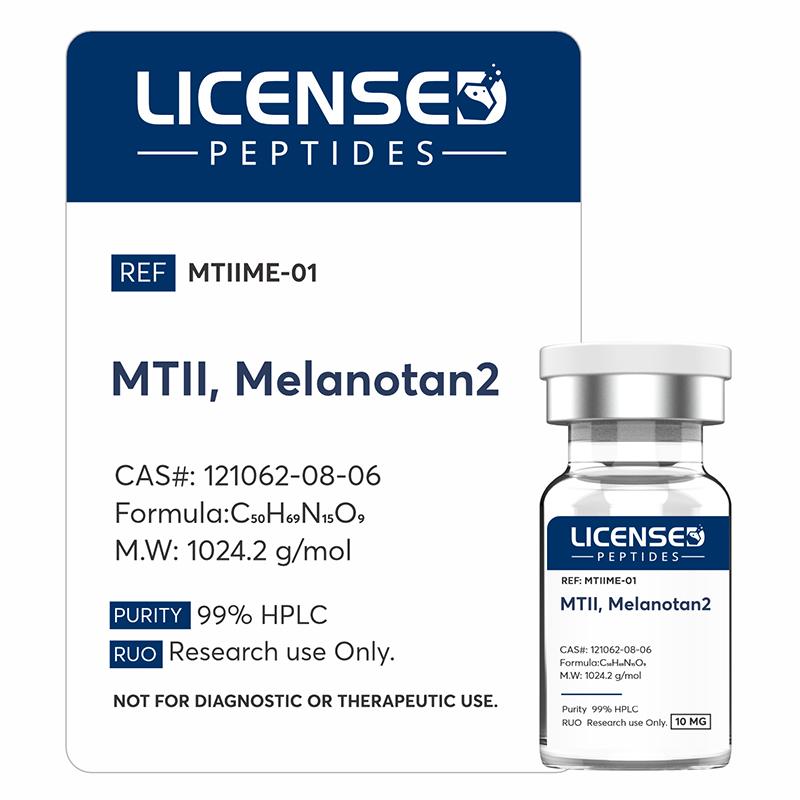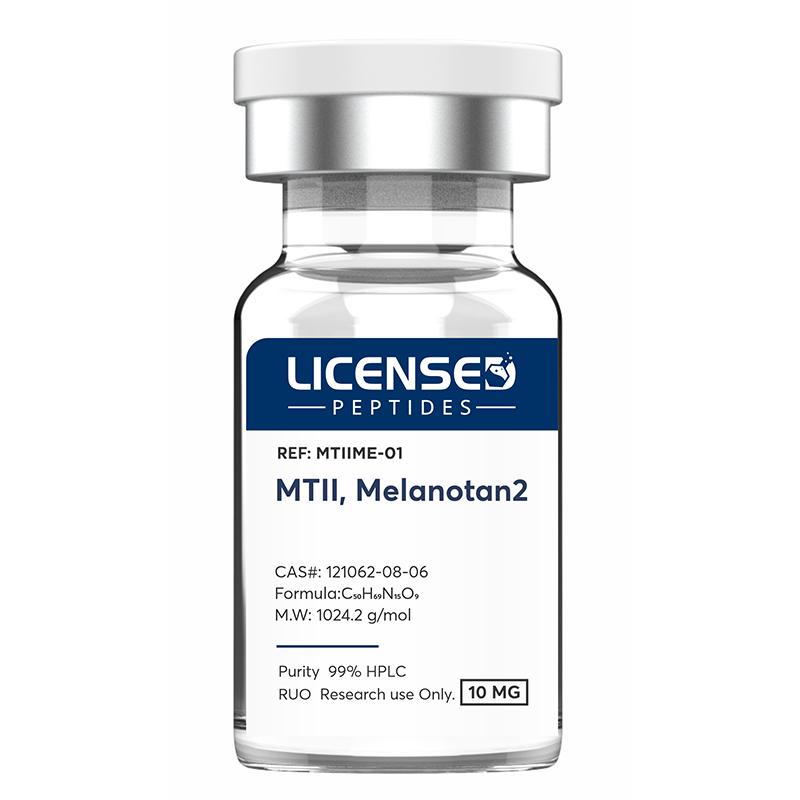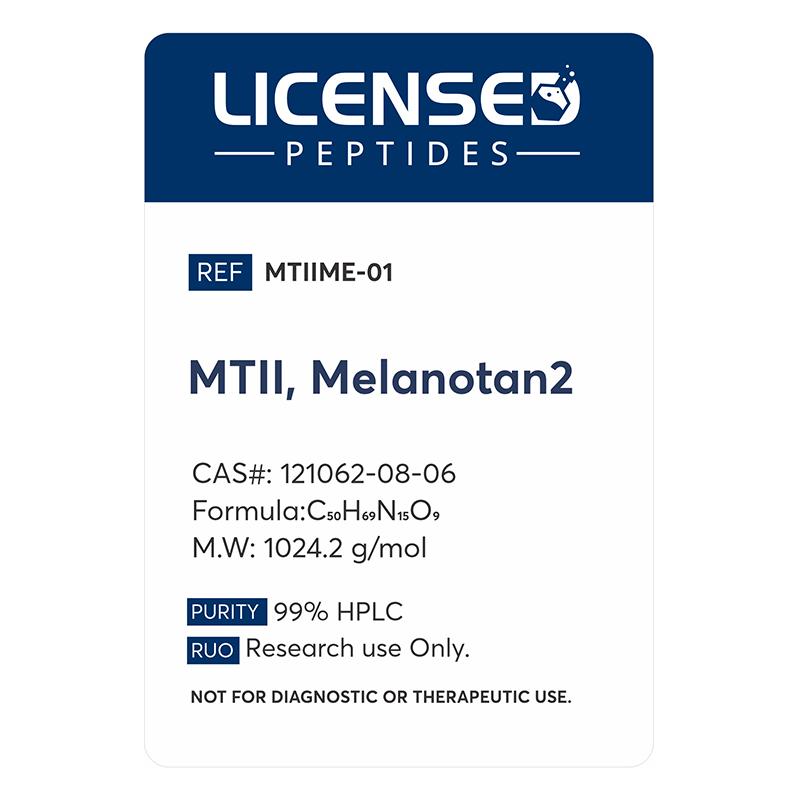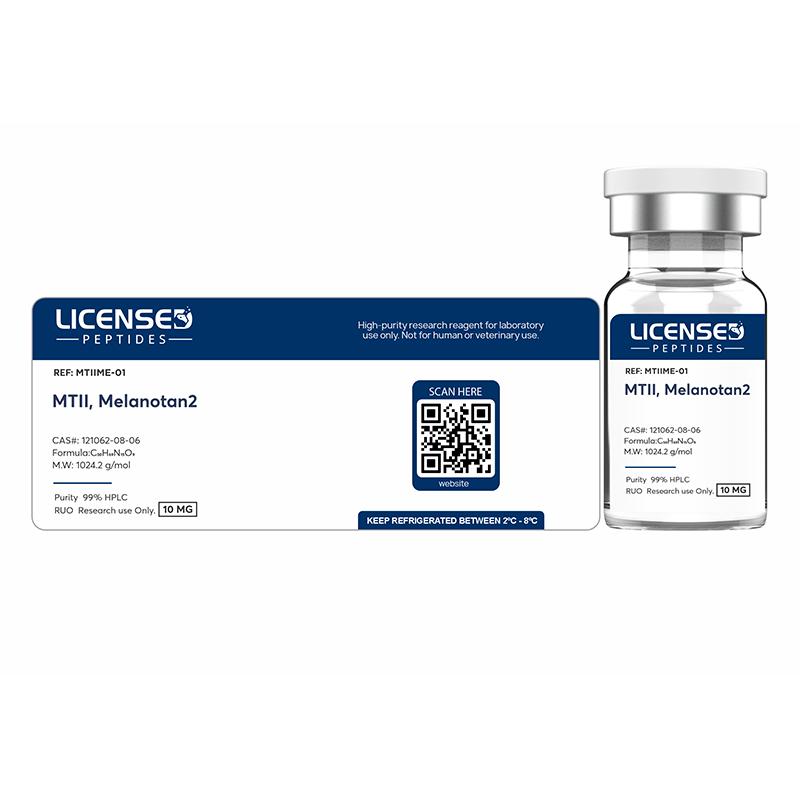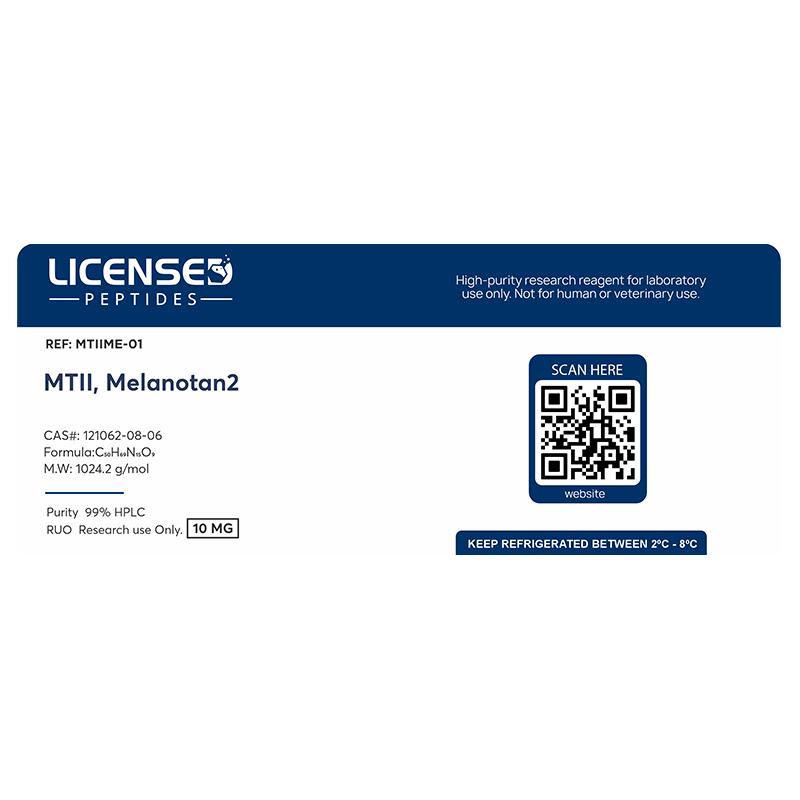MTII, Melanotan2 10mg
$49.99
Melanotan-2 (MT-2) is a synthetic analogue of alpha-melanocyte-stimulating hormone (α-MSH), originally developed in the 1980s. Research indicates that MT-2 may influence several physiological processes, including enhancement of sexual arousal, reduction of compulsive or addictive behaviors, appetite suppression, and stimulation of melanin synthesis. By activating melanocytes, MT-2 promotes increased skin pigmentation. Preliminary studies have also suggested a potential role in supporting neurodevelopmental outcomes, with some evidence pointing to possible benefits in early interventions for autism.
$49.99
$49.99
Peptide Capsules
Purchase Peptides
Purchase Blends
Melanotan-2 (MT-2) is a synthetic cyclic heptapeptide and analogue of the endogenous neuropeptide α-melanocyte-stimulating hormone (α-MSH). First synthesized in the 1980s, MT-2 exhibits high affinity for melanocortin receptors (particularly MC1R, MC3R, MC4R, and MC5R), thereby modulating diverse physiological pathways. Preclinical and clinical investigations have demonstrated that MT-2 can enhance sexual arousal, attenuate compulsive and addictive behaviors, suppress appetite, and induce melanogenesis through direct stimulation of melanocytes. Its capacity to increase cutaneous pigmentation has been of particular interest in dermatological research. Furthermore, emerging evidence has suggested a potential role for MT-2 in neurodevelopmental modulation, with exploratory studies indicating possible benefits in the context of early childhood interventions for autism spectrum disorders.
Melanotan II: Structure
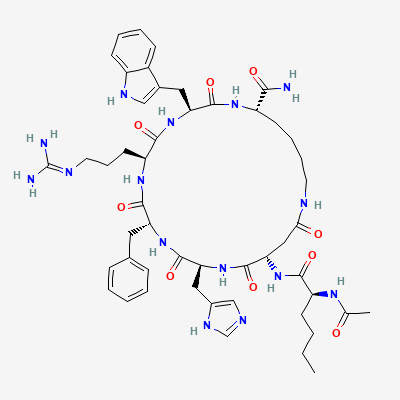
Peptide Sequence: Nle-Asp(1)-His-D-Phe-Arg-Trp-Lys(1)
Molecular Formula: C₅₀H₆₉N₁₅O₉
Molecular Weight: 1024.198 g/mol
PubChem CID: 92432
CAS Number: 121062-08-6
Source: PubChem
Melanotan II: Research
Sexual Function & Arousal
Erectile Function
In a double-blind, placebo-controlled trial involving 20 men with both psychogenic and organic erectile dysfunction, MT-2 induced penile erection in 17 of 20 participants even without sexual stimulation. Erection rigidity (Rigiscan >80%) lasted on average 41 minutes. Sexual desire increased in 68% of MT-2 doses versus only 19% with placebo (P < 0.01). Common side effects included nausea and yawning; higher doses triggered more severe nausea PubMed.
Phase I Human Trial
In a pilot Phase I study with three healthy male volunteers receiving escalating subcutaneous MT-2 doses (up to 0.025 mg/kg), common mild side effects included stretching, yawning, mild GI upset, and flushing. Spontaneous, nonpainful erections occurred in all three subjects post-dosing. The maximally tolerated dose was determined to be 0.025 mg/kg, and no adverse effects were reported during a six-month follow-up.
Behavioral, Neurological & Metabolic Effects
Autism Model (Mouse Study)
In a maternal immune activation mouse model of autism, MT-2 reversed autistic-like behavioral abnormalities, suggesting its potential as a neurodevelopmental modulator PubMed.
Zebrafish Model: High-Fat Diet Induced Impairment
Zebrafish fed a high-fat diet showed impaired recognition memory, increased anxiety, and reduced exploration. These behavioral deficits were reversed by MT-2 treatment, indicating its possible neuroprotective and cognitive-restorative effects PubMed.
Oxytocin Neuronal Activation
In rats, intravenous (but not intranasal) MT-2 significantly activated oxytocin neurons marked by increased Fos protein in hypothalamic regions (SON and PVN). Electrophysiology confirmed heightened firing rates in oxytocin neurons. The response was attenuated by melanocortin antagonists, implying an indirect central mechanism that could influence social behaviors.
Referenced Citations
ALL ARTICLES AND PRODUCT INFORMATION PROVIDED ON THIS WEBSITE ARE FOR INFORMATIONAL AND EDUCATIONAL PURPOSES ONLY.
The products available on this website are intended solely for in-vitro research purposes (Latin: “in glass”), meaning they are used in experiments conducted outside a living organism. These products are not medicines or drugs, have not been evaluated or approved by the U.S. Food and Drug Administration (FDA), and are not intended to diagnose, treat, cure, or prevent any disease or medical condition. Any administration to humans or animals, whether by ingestion, injection, or other means, is strictly prohibited by law.
Test
Storage Instructions:
All of our products are manufactured using the Lyophilization (Freeze Drying) process, which ensures that our products remain 100% stable for shipping for up to 3-4 months.
Once the peptides are reconstituted (mixed with bacteriostatic water), they must be stored in the fridge to maintain stability. After reconstitution, the peptides will remain stable for up to 30 days.
Lyophilization is a unique dehydration process, also known as cryodesiccation, where the peptides are frozen and then subjected to low pressure. This causes the water in the peptide vial to sublimate directly from solid to gas, leaving behind a stable, crystalline white structure known as lyophilized peptide. The puffy white powder can be stored at room temperature until you’re ready to reconstitute it with bacteriostatic water.
Once peptides have been received, it is imperative that they are kept cold and away from light. If the peptides will be used immediately, or in the next several days, weeks or months, short-term refrigeration under 4C (39F) is generally acceptable. Lyophilized peptides are usually stable at room temperatures for several weeks or more, so if they will be utilized within weeks or months such storage is typically adequate.
However, for longer term storage (several months to years) it is more preferable to store peptides in a freezer at -80C (-112F). When storing peptides for months or even years, freezing is optimal in order to preserve the peptide’s stability.
For further information on proper storage techniques, click the link below:
